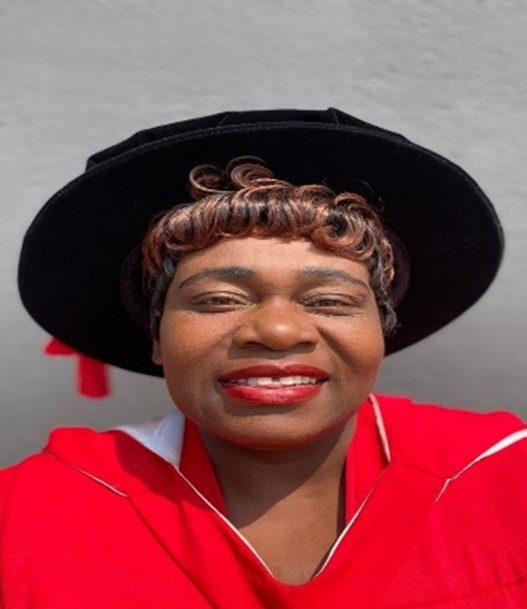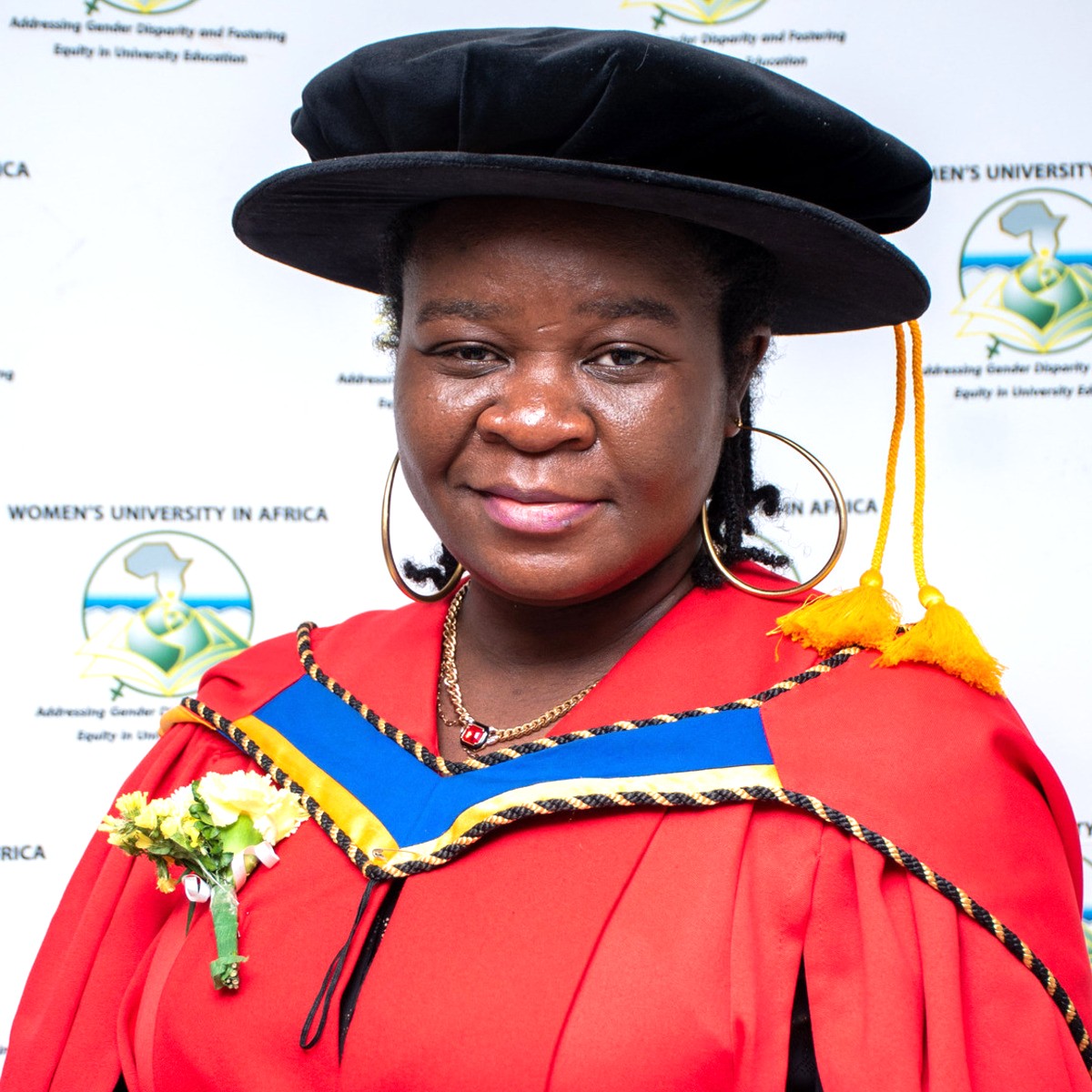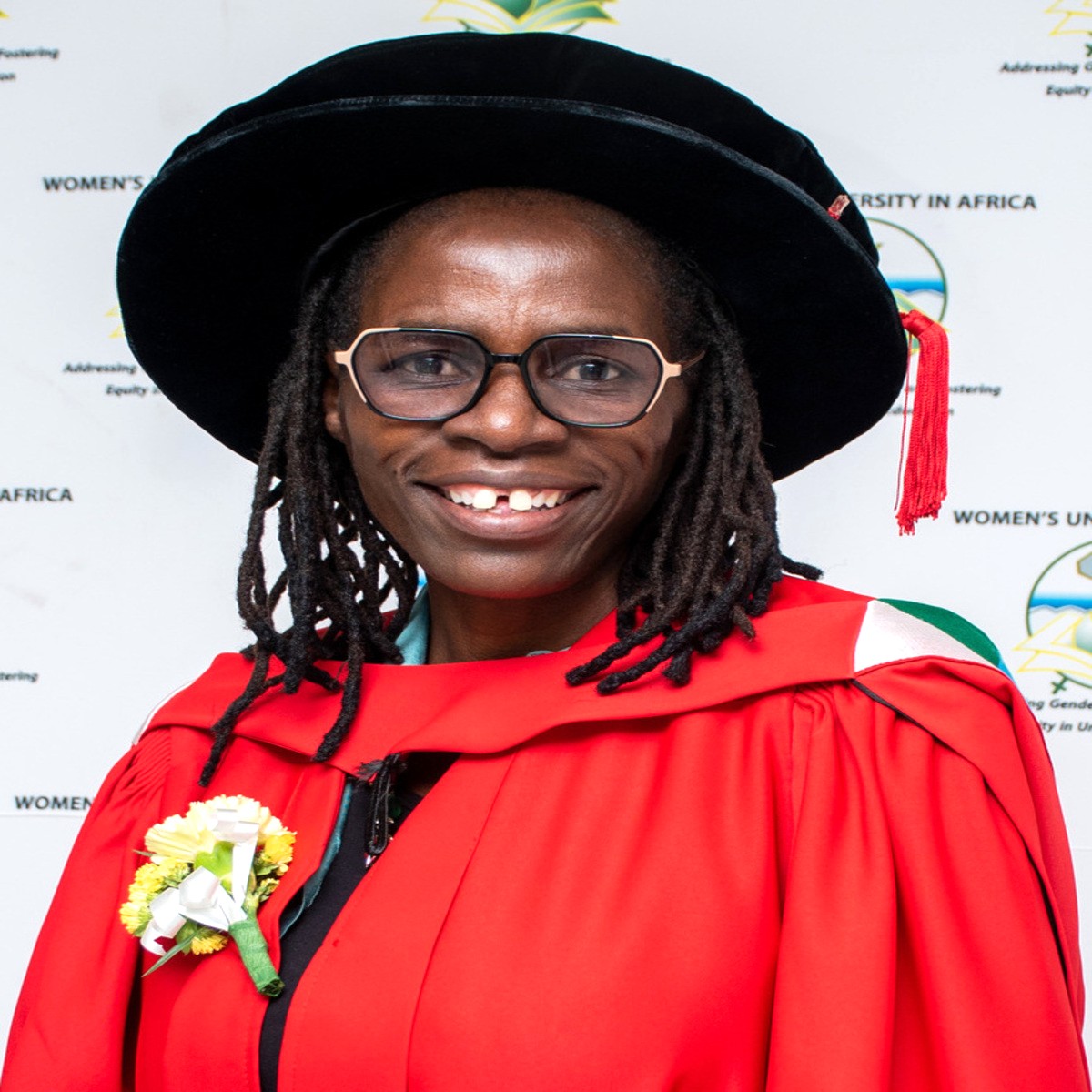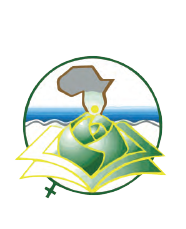
Dean of the Faculty of Management and Entreprenuerial Science
Precious Hove is the dean for faculty of Management and Entrepreneurial Sciences at Women University in Africa, Zimbabwe. Precious Hove holds a Doctorate degree in Business Management obtained from Witwatersrand, South Africa, a Master’s degree in Strategic Management, obtained from Chinhoyi University of Technology, an Honors degree in Business Management obtained at Midlands State University and a Diploma in Education, obtained from the University of Zimbabwe. Precious possess leadership skills and promotes team spirit at work. She is a an honest person with confidence in her work. Precious is a woman of integrity. Over the years, Precious has developed interest in business management, new product developments, entrepreneurship and knowledge management. She has co-authored several publications in those areas. Precious has over 15 years’ experience at Universities.

Dean of the Faculty of Social & Gender Transformative Sciences
Dr Itai Hlonie Mafa is a self-motivated and critical social worker who is enthusiastic about academia, gender issues, social policing, social justice and sexual and reproductive health rights. She has a proven record in social research and has been consulted for research projects in Zimbabwe and South Africa. Dr Mafa is involved in various research committees in the faculty which has sharpened her research skills. She has also accumulated more than ten years of extensive experience in tertiary institutions as a lecturer for various Social Work courses and carrying out post-graduate research supervision. Dr Itai Hlonie Mafa has a well-developed teaching philosophy and a flexible attitude to work, with excellent communication and written skills. Dr Mafa has participated in curricula development and curricula review in Zimbabwe and South Africa, contributing to quality assurance. She is the current NASW-Z treasurer, a thought leader for ZIMCHE and was also involved in consolidating MBKs.
Published articles
Mukurazhizha, R and Mafa, I. (2022). Flaws in preparing children with disabilities for life after Institutional Care in Zimbabwe: Implications for Social Work Practice. Journal of Social Development in Africa, 37
Chisango, T., Mafa I., & Maunganidze, L. (2022). Investigating the sexist implications of Bride Price (Lobola) in Zimbabwe. Society doi:10.1007/s12115-022-00743-7
Chigangaidze, R., Mafa, I., Simango, T and Mudewe, E. (2022). Establishing the relevance of the Ubuntu philosophy in Social work Practice: Inspired by the Ubuntu World Social Work Month 2021 Celebration and the IFSW (2014) global definition of Social work. International Social work:Doi:10.1177/00208728221078374
Chatukuta, A and Mafa, I. (2022). The significance of the clinical social workers’ dress in the helping process: The clients’ perceptions. Practice: Doi:10.1080/09503153.2022.2035706
Simango, T.G and Mafa, I. (2022). Child Disciplinary Practices versus Child Rights in Zimbabwe: Viewed through Social Work Lenses Qualitative Sociological Review 18 (1) 114-131 DOI: https://doi.org/10.18778/1733-8077.18.1.06
Charamba, S., Mafa, I and Chikadzi, V. (2021). ‘In the eye of the storm’: An exploration of the psychosocial experiences of teen mothers in Zimbabwe. Indian Journal of Social Work (82) 12
Mafa, I., Simango, T. and Chisango, T. (2021). Under-Reportage of ‘Sex-For-Marks’ Cases within Public Universities in Zimbabwe. Sexuality, Gender and Policy Doi:10.1002/SGP2.12038
Mafa, I and Simango, T.G. (2021). Exploring the ‘Thigh-For-Marks’ Phenomenon among Public Universities in Zimbabwe. Journal of Human Rights and Social Work https:/doi.org/10.1007/s41134-021-00188-8
Chisango, T., Muridzo, N., Mafa, I and Khombo, S. (2021). An exploration of the stereotype content model to university lectures. Journal of Applied Social Sciences https:/doi.org/10.1177/19367244211026915
Mafa, I. (2021). Pertinent ills concomitant with matrifocality in Zimbabwe: Implications for development. Innovare Journal of Social Sciences, 9 (2):10-15
Muridzo, N, Chikadzi, V., Mahunste S and Mafa, I. (2021). Legal shortcomings in the VFS forums responding to child sexual abuse: Lessons from a Zimbabwean case study. African Journal of Social Work 11(1): 32-39
Mafa, I., Kange’the S. and Chikadzi, V. (2020). ‘Revenge Pornography’ and Women Issues: Implications for Social Work Practice and Women’s Rights. Journal of Human Rights and Social Work, 5 (1) : 118-128 https://doi:10.1007/s41134-020-00118-0
Mahuntshe, L., Muridzo, N., Chikadzi, V and Mafa, I. (2020). Responding to the COVID-19 pandemic in Zimbabwe: Lessons from 2018 Cholera outbreak. Journal of Social Development in Africa, 35 (Special Issue): 91-106
Mafa, I and Kange’the, S. (2019).Women-NGOs and Financial Viability: Implications for Women Empowerment Processes from a Social Work Perspective. African Journal of Social Work, 9(2):43-51
Muridzo, N., Chikadzi, V., Mafa, I and Chinyenze, P. (2018). Parental Circumstances leading to Child Sexual Abuse in Zimbabwe. Journal of Social Development in Africa, 33(2):135-168
Mafa, I and Kange’the S.M. (2016). Exploring the Underpinnings of Pseudo-Prostitution in Institutions of Higher Learning in selected African countries. Journal of Sociology and Anthropology, 7(3):167-174
Mafa, I & Kange’the S.M. (2016). A critical Analysis of the prostitution phenomenon, drawing examples from selected African countries: A Literature Review. Journal of Sociology and Anthropology, 7(4):279-288
Kange’the S.M and Mafa I. (2014). Evaluating the survival strategies adopted by single mothers to enhance their livelihood in Zimbabwe. Mediterranean Journal, 5 (2): 1222-1229
Kange’the S.M and Mafa I. (2014). Dynamics associated with the state of cohabitation in developing countries. A literature Review. Mediterranean Journal, 5(4):601-609
Kange’the S.M and Mafa I. (2014). Assessing Post-Apartheid Poverty in South Africa. A literature Review. Mediterranean Journal, 5(1):449-456
Kange’the S.M and Mafa I. (2014). Dynamics associated with matrifocality in Zimbabwe. Journal of Sociology and Anthropology, 5(2):131-139
Published Book Chapter (s)
Mudewe, E., Simango, T., Mafa, I and Chingangaidze, R. (2022). Demystifying the National Case Management System in Child protection. In Professional Social Work in Zimbabwe: Putting Children First. Beyond the Vale Publishing: Edenvale, South Africa
Published Book (s)
Mafa, I. (2020). Identity and Identity Crisis: A Practical Guide to Finding Your True Self. Kindle Direct Publishing

Dean of Students
Dr. Abigail Rudorwashe Benhura attained her PhD in Conflict, Transformation and Peace Studies from the University of KwaZulu-Natal, South Africa in 2017. She immediately enrolled for her Postdoctoral Studies with the same university until December 2018. She also holds an MSc in Development Studies from the Women’s University in Africa. During this period, she was also the University of KwaZulu-Natal coordinator of the Young Women’s Leadership Workshop, an African Gender Institute sponsored organization which brought together 7 universities from the SADC region. These universities tackled institutional gendered issues that mainly affected young female students during their study periods. She joined WUA in 2019 as a senior lecturer in Child Sensitive Social Policies where she rose to the position of the department’s coordinator before being appointed to the position of the Dean of Students in 2021.
As the Dean of Students, she sees to the general welfare of students which covers physical and mental health, counselling during bereavement, advice and moral support to students experiencing emotional stress. Her responsibilities also encompass facilitating students’ participation in sports, clubs and social activities, institutional governance and accommodation needs. During her tenure as the Dean of Students, the Department of Student Affairs has become more inclusive of students in WUA satellite campuses as they participate in a wide range of areas such as the Student Representative Council, clubs and societies, inter-institutional sports tournaments and national events. She facilitated the amendment of the SRC Constitution to include a Gender and Inclusion Secretary whose responsibility is to ensure that students’ diversity and needs are catered for such as disability-induced needs, mature students or single (mothers) parents’ unique needs as they pursue their studies. Various WUA teams have also reached varying levels of success in the highly competitive Zimbabwe Universities Sports Association (ZUSA), Zimbabwe Tertiary Institutions Sport Union (ZTISU) and Confederation of Universities and Colleges Sports Association (CUCSA), SAYWHAT Quiz and Debate.
In the academic arena, Dr Abigail Benhura is a seasoned researcher who has done extensive research on forced migration, with keen interest on the migrants’ lived realities, access to (or lack of) basic services and the general socio-political and economic implications of the populations’ involuntary mobility. Her doctoral research interrogated the provision of secondary school education in displaced communities in Zimbabwe. She has also made her mark in regional and international scientific research conferences where she presented papers predominantly in forced mobilities and more recently, in social protection policy and services. She has won grants, done collaborative and individual research on various topical issues such as gendered perspectives on the efficacy of social protection services, intersections of gender, disabilities and poverty in the informal sector as well as in the tourism sector.
Women's University in Africa © 2026

